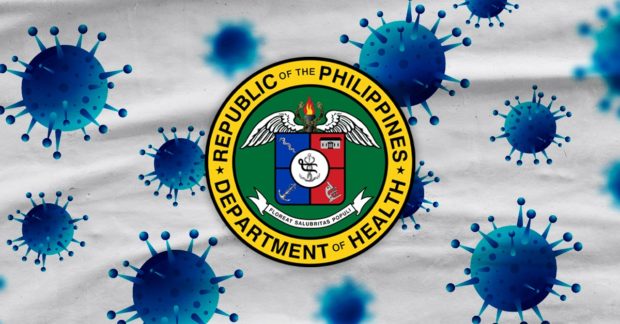
MANILA, Philippines — The entry of the highly transmissible COVID-19 Delta variant in the country is inevitable, the Department of Health (DOH) admitted on Monday.
Now spreading in nearly 100 countries, the Delta variant of the coronavirus disease has fueled fresh rounds of infection surges worldwide.
The country’s border controls against the entry of variants included seven- to 10-day hotel quarantine for all arrivals and a travel ban on seven countries, including India, where Delta was first detected.
The Philippine Genome Center (PGC) has so far detected 19 cases of the Delta variant among returning overseas Filipinos. One has died while the rest have recovered.
No local Delta variant case has been detected, but the PGC was able to analyze only 711 random samples from COVID patients since May 9.
The PGC has found numerous local cases of the highly infectious Alpha variant first detected in the United Kingdom and the Beta variant that originated in South Africa. It has also detected two cases among returning overseas Filipinos of the Gamma variant first seen in Brazil.
“[The DOH] and experts think that time will come when these variants will reach the community. These strategies we are doing are just trying to buy us time so we can prepare and so that our [health] systems and people will be ready,” Health Undersecretary Maria Rosario Vergeire said at a media briefing on Monday.
“We are very hopeful that our border controls will be able to mitigate or prevent and avoid the entry [of the variants]. But in case it goes through our borders, even just one, we have other safeguards,” she added, referring to the prevention, detection, isolation and treatment protocols and public health standards.
The Philippines has banned arrivals from Pakistan, Nepal, Bangladesh, Sri Lanka, Oman, and the United Arab Emirates to prevent the entry of the Delta variant.
The DOH did not call for a wider travel ban though the Delta variant has become a global concern.
“We can’t isolate our country from all of these countries [with the variants]. We have our people there; we can’t stop [them] from returning home,” Vergeire said.
“We need to intensify our border controls … We think it’s effective because we were able to identify individuals with the Delta variant, isolate them and they have not entered the community,” she added.
Localized lockdowns
President Rodrigo Duterte’s economic managers have also opposed a proposal to extend the prevailing quarantine restrictions in Metro Manila and nearby provinces up to year-end, saying this would only keep hunger and unemployment high.
Instead, Finance Secretary Carlos Dominguez III and Socioeconomic Planning Secretary Karl Kendrick Chua on Monday sought to continue managing pandemic risks while speeding up vaccination to protect not only lives but also livelihoods from the threat posed by the Delta variant.
“We recognize the higher risk brought about by the Delta variant. This can be better managed by guarding our borders and enforcing the health standards,” Dominguez quoted Chua as saying.
They also preferred imposing localized lockdowns in areas to be affected by the Delta variant rather than placing the entire country or large areas under general community quarantine (GCQ) or tougher restrictions.
Metro Manila and neighboring provinces are under GCQ, a notch stricter than the least stringent modified general community quarantine imposed in areas with low infections.
Dr. Rontgene Solante, a member of the government’s vaccine expert panel, proposed to extend the GCQ being implemented in Metro Manila and other high-risk provinces up to December.